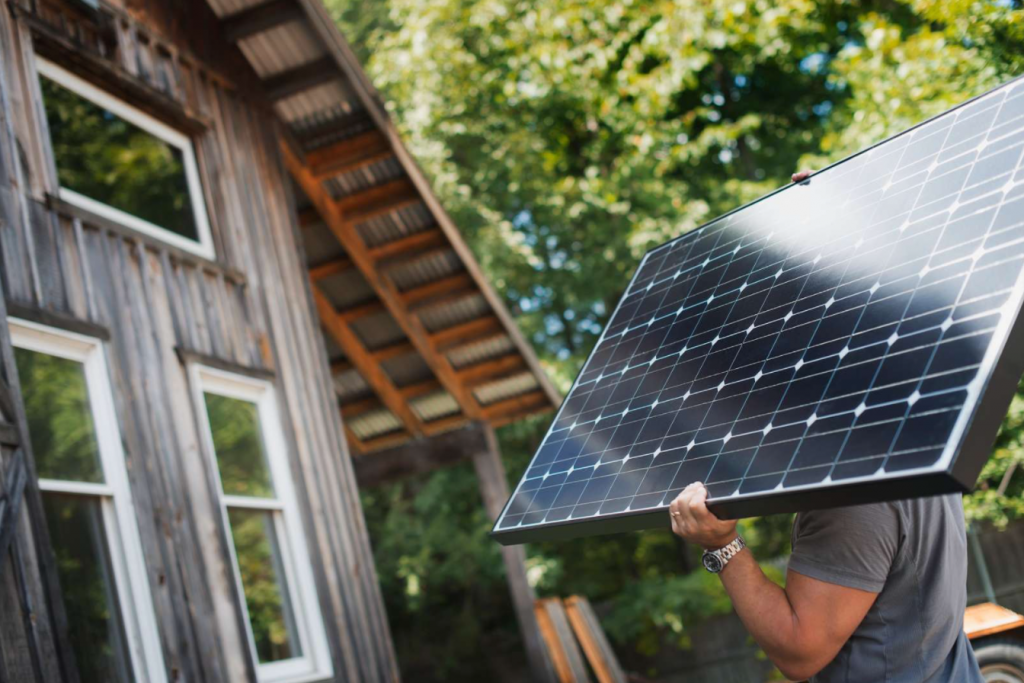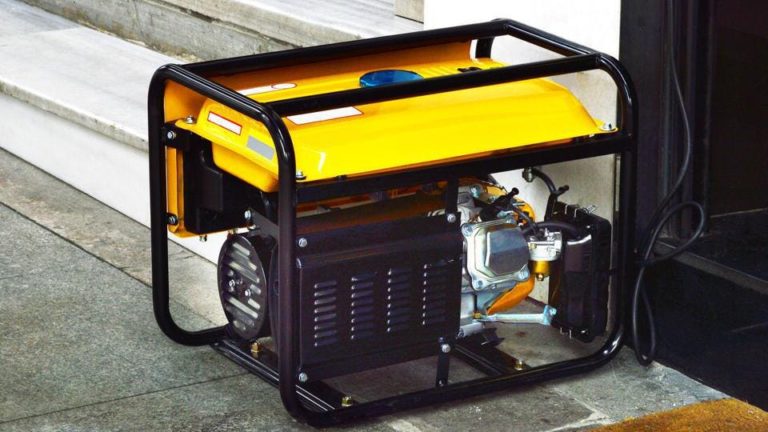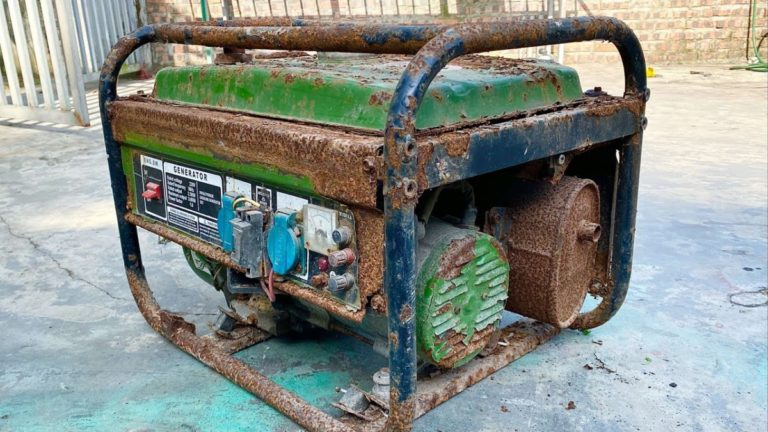If you’re considering living off the grid, one of the most important decisions you’ll make is choosing a reliable and efficient power system.
While solar panels and wind turbines are popular options, they may not always be practical or cost-effective solutions.
That’s where grid power systems come in – offering a range of benefits that can make your off-grid living experience more comfortable, convenient, and sustainable.
With the ability to generate consistent electricity, reduce energy costs, and provide backup power during outages, grid power systems are an increasingly popular choice for those looking to disconnect from the traditional grid.
We’ll explore the advantages of using a grid power system for your off-grid living needs.
Reliability
Grid power systems provide a reliable source of energy, reducing the risk of power outages and blackouts.
These systems are designed to provide a consistent and steady supply of electricity, and are built with multiple layers of redundancy to ensure that they can continue to operate even in the event of equipment failure or other disruptions.
For example, grid power systems often include backup power sources, such as diesel generators or batteries, that can take over in the event of a power loss.
This reliability is critical for industries such as healthcare, transportation, and communication, which rely on a consistent supply of electricity to function effectively.
By leveraging the reliability of grid power systems, businesses and organizations can reduce the risk of power-related disruptions and maintain their operations with confidence.
Cost-effectiveness
While the initial investment in a grid power system may be higher, the long-term cost of energy is often lower than alternative off-grid systems, such as solar or wind.
One of the primary benefits of grid power systems is their cost-effectiveness.
While the initial investment in a grid power system may be higher than other off-grid systems, such as solar or wind, the long-term cost of energy is often lower.
This is because grid power systems can take advantage of the economies of scale of the existing grid infrastructure, which can lead to lower costs per unit of energy produced.
Grid power systems can benefit from the reliability and stability of the grid, which can reduce the need for backup power sources and maintenance costs.
Furthermore, grid power systems can be easily scaled up or down depending on the needs of the user, which can provide more flexibility and cost savings compared to fixed off-grid systems.
In contrast, off-grid systems often require more expensive batteries and backup power sources to ensure reliability, which can increase their overall cost.
Overall, grid power systems offer a cost-effective solution for those looking to generate their own energy while still being connected to the grid.
Energy Security
With a grid power system, you have access to a steady supply of energy, regardless of weather conditions or time of day.
One of the key advantages of a grid power system is energy security.
Unlike traditional power sources, such as fossil fuels, which are subject to volatile market fluctuations and weather-related disruptions, a grid power system provides a reliable and steady supply of energy.
Whether it’s a sunny day or a stormy night, a grid power system ensures a constant flow of electricity to meet your energy needs.
With a grid power system, you can store excess energy during periods of low demand and use it during times of high demand, providing a hedge against fluctuations in energy prices.
This provides peace of mind and a stable source of energy for your home or business, regardless of weather conditions or time of day.
Moreover, with a grid power system, you can monitor your energy usage and adjust your consumption in real-time, giving you greater control over your energy costs and helping you to optimize your energy use.
Overall, a grid power system provides a reliable, stable, and secure source of energy, giving you the freedom to focus on other aspects of your life without worrying about your energy needs.
Scalability
Grid power systems can be easily scaled up or down depending on your energy needs, making them a flexible option for off-grid living.
Grid power systems offer unparalleled scalability, allowing you to tailor your energy solution to your specific needs.
Whether you’re looking to power a small homestead or a large off-grid community, grid power systems can be easily scaled up or down to meet your energy requirements.
This flexibility is achieved through a modular design, where individual components can be added or removed as needed.
For example, you can start with a small solar array and add more panels as your energy needs increase, or you can begin with a single battery bank and expand it as your energy storage requirements grow.
Grid power systems can incorporate a range of energy sources, such as wind, hydro, and biomass, allowing you to mix and match the most appropriate sources for your location and needs.
This scalability ensures that your energy system can evolve with your needs, providing a reliable and sustainable source of power for your off-grid living space.
Low Maintenance
Grid power systems typically require less maintenance than off-grid systems, as they do not rely on batteries or other complex components.
Grid power systems are designed to be low maintenance, as they do not rely on batteries or other complex components like off-grid systems do.
This means that you won’t have to worry about regularly replacing or servicing parts, which can save you time and money in the long run.
With grid power systems, you can simply plug in your devices and start using them right away, without having to worry about any maintenance or upkeep.
This is especially beneficial for businesses and households with multiple devices, as it eliminates the need for frequent cleaning, charging, or replacement of batteries.
Grid power systems are less prone to faults and malfunctions, as they are connected to a reliable and stable power source, which can further reduce the need for maintenance.
Overall, the low maintenance aspect of grid power systems makes them an attractive option for those looking for a hassle-free and reliable source of power for their homes and businesses.
Improved Safety
Grid power systems are generally considered safer than off-grid systems, as they are designed to meet strict safety standards and are regularly inspected and maintained.
Grid power systems are designed and constructed with safety in mind, and are subject to strict safety standards and regular inspections to ensure compliance.
This means that grid power systems are equipped with a range of safety features, such as surge protection devices, automatic circuit breakers, and grounding systems, to protect against electrical hazards and prevent electrical shock or fire.
In addition, grid power systems are regularly maintained and inspected by trained professionals, who can identify and address any potential safety issues before they become major problems.
This proactive approach to safety ensures that grid power systems are among the safest options for powering homes and businesses.
Furthermore, because grid power systems are connected to the main electrical grid, they can benefit from the redundancy and backup systems that are built into the grid, providing an added layer of reliability and safety.
This is particularly important in areas prone to natural disasters or other disruptions to the power supply.
Overall, the improved safety of grid power systems is a major advantage for those looking to power their homes and businesses in a reliable and safe manner.
Environmental Benefits
By using the existing grid power infrastructure, you can reduce your carbon footprint and contribute to a more sustainable future.
One of the most significant advantages of grid power systems is their ability to reduce our carbon footprint and contribute to a more sustainable future.
By leveraging the existing grid power infrastructure, you can harness renewable energy sources such as wind and solar power, and distribute it to your home or business in a reliable and efficient manner.
This not only helps to reduce your reliance on fossil fuels, but it also helps to reduce the overall carbon emissions of the power grid.
In fact, according to the Environmental Protection Agency (EPA), the use of grid-connected renewable energy systems can help to reduce greenhouse gas emissions by up to 70% compared to traditional fossil fuel-based power systems.
Grid power systems can also help to improve air quality, reduce water pollution, and mitigate the impacts of climate change.
By investing in grid power systems, you can not only reduce your energy costs, but also play a critical role in protecting the environment for future generations.
Increased Property Value
Homes equipped with grid power systems are often more attractive to potential buyers and can increase property value.
The integration of grid power systems in homes can have a significant impact on their property value.
Not only do these systems provide a reliable and efficient source of energy, but they also offer a number of benefits that can enhance the overall appeal of a property.
For instance, homeowners with grid power systems can enjoy lower energy costs and a reduced carbon footprint, which can be a major selling point for potential buyers who are looking for environmentally friendly homes.
These systems can increase the comfort and convenience of a property, as they can provide a consistent and reliable source of power for heating, cooling, and lighting.
This can be especially appealing to buyers who are looking for a hassle-free living experience.
Furthermore, the increased property value resulting from the installation of grid power systems can be quantified and documented through energy efficiency certifications, such as the ENERGY STAR label.
These certifications can help to differentiate a property from others on the market, making it more attractive to potential buyers.
In fact, a study by the U.S.
Department of Housing and Urban Development found that homes with energy-efficient features, such as grid power systems, sell for an average of $1,500 to $10,000 more than similar homes without these features.
As such, the installation of grid power systems can not only benefit homeowners through lower energy costs and a reduced carbon footprint, but it can also increase property value and attract more buyers in the market.
Want More? Dive Deeper Here!
Hey there! If you’re the type who loves going down the rabbit hole of information (like we do), you’re in the right spot. We’ve pulled together some cool reads and resources that dive a bit deeper into the stuff we chat about on our site. Whether you’re just killing time or super into the topic, these picks might just be what you’re looking for. Happy reading!






